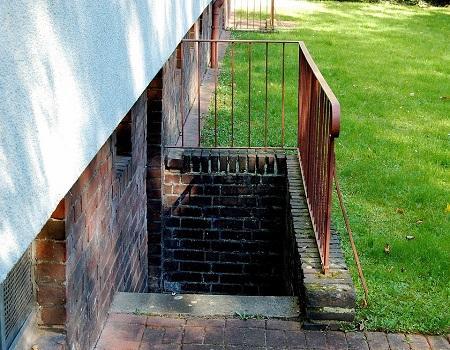There a dizzying number of choices to be made in any home renovation project. In basement remodeling, one of the most common and sometimes confusing choices is between metal and wooden studs.
Remodeling experts at Sebring Services, a Naperville-based home renovation company, have encountered plenty of homeowners torn between these options. In this guest post, they talk more about metal vs. wooden studs in relation to basement remodeling.
Key Considerations
If you are wondering which option to go with, here are some considerations to help you make the right decision. It is also a good idea to involve your contractor in deciding between metal and wood.

- Strength
A stud wall can be built to serve as a load-bearing wall (e.g. an exterior wall) or as a partition wall (e.g. an interior wall separating spaces). Obviously, a load-bearing wall needs to be strong enough to bear the weight on it. On the other hand, a non-loadbearing wall can use lighter and less-strong materials.
Surprisingly, wood is stronger than steel and is highly recommended for support walls. It can bear a significant amount of weight without bending. Steel studs are recommended when building a partition wall. But even then, it is often not a good idea to hang heavy cabinets on the wall later on.
If strength is a major priority for you, regardless of the wall type, wooden studs are better. Note that even if you use metal studs, you have to use wooden ones in certain areas such as door frame.
- Convenience and Ease of Construction
When it comes to convenience, metal studs are a clear winner. Steel studs are significantly lighter than wooden ones. This makes them easier to carry down to the basement and you can even carry several at a time. Cutting them is also easier and takes just a few seconds using a tin snip. Cutting wood studs takes more time and is messier because of all the sawdust.
But when it comes to ease of construction, wood studs have a slight edge. Metal studs present a bit of trouble when nailing them to the baseboard. There is also a risk that they will pull away with time. This can be solved by using glue to firmly attach the studs to the baseboard.
- Stability and durability
One of the main concerns in basement renovation is the effect of moisture over time. Wood does not react very well in humid conditions and tends to warp, contract or expand. This leads to a less-stable structure and nails can even pop out as the wood changes shape and size. Steel studs on the other hand have no such worries. Metal does not warp when exposed to moisture, ensuring that your studs stay strong.

- Cost
In many cases, metal vs wood studs cost more. The cost goes even higher when you consider other components required such as fasteners. But when you factor in that steel studs are easier to use, take less time to set up and are cheaper to maintain, the higher purchase costs are cancelled out.
